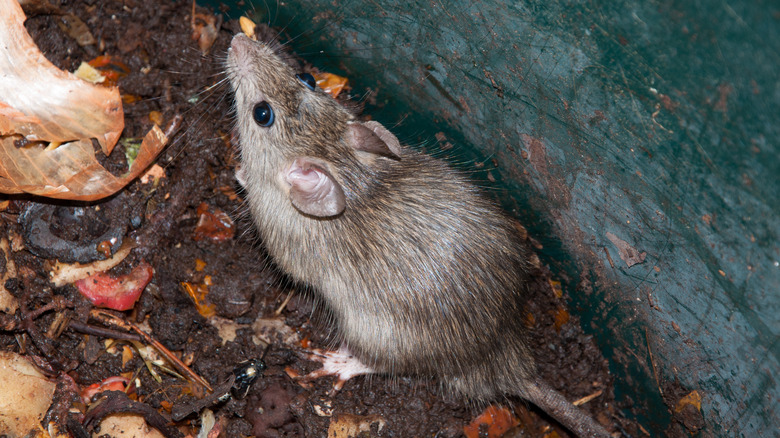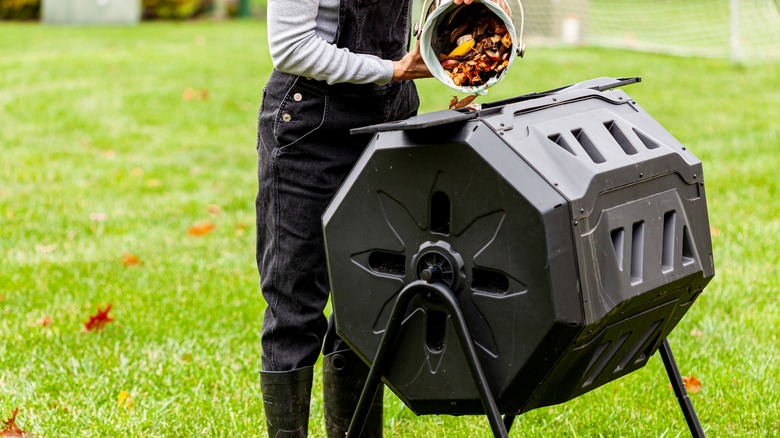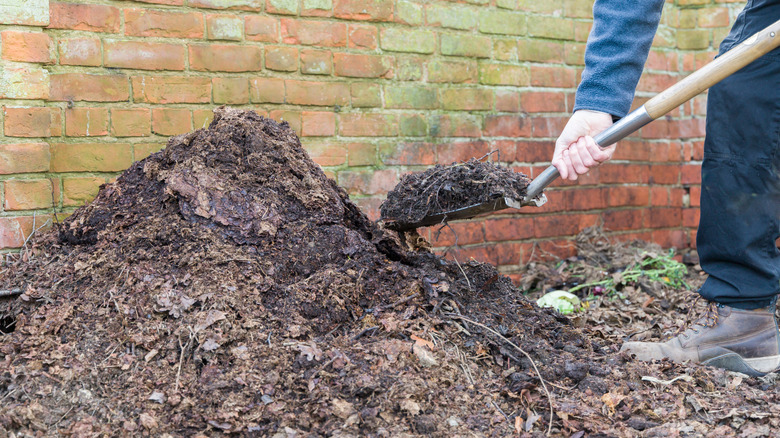The Best Way To Keep Hungry Rodents Out Of Your Compost Pile
There are many benefits to composting, including reducing food waste and feeding your plants. Unfortunately, one of the drawbacks is unwelcome guests. Compost piles can become the residence of mice and other rodents since they can make a warm nest at an all-you-can-eat buffet. You and your neighbors won't view it the same way, of course, so you need to keep them at bay. The best thing you can do is make your pile inaccessible to rodents, and keep it wet and consistently moving so they won't want to live there.
Rats and mice can spread several diseases, and since they're probably the ones who are going to call your compost "home," it's important to make your pile as unpleasant to them as possible. Fortunately, some of the things you can do to keep rodents at bay are also good for your compost, including frequent turning and sufficient water — both of which are necessary for maximizing the breakdown of the materials in your compost pile.
Revoke access to the compost
The simplest way to keep a compost pile is to do it directly on the ground, although this method won't be ideal if troublesome rodents are in the area. Another method, though, is to raise your compost pile off the ground. You can buy rotating compost bins that are held up by legs and can be turned to rotate, or you can use a wooden one that has a bottom off the ground.
If the rodents you're dealing with seem exceptionally agile and smart, a compost bin with a tight lid will ensure they stay out of it. Any vents on the system should have a wire mesh that's small enough to keep mice from crawling through. If your compost bin doesn't have a lid, try making a removable wire mesh lid you can keep on when you're not using the pile. Placing the raised bin on the concrete, deck, or gravel pile will further reduce your chances of rodents moving in.
Keep the compost pile moist and turning
You wouldn't want to sleep on a soggy mattress with wet blankets, and neither do rodents. Although water sources will attract them, too much of it is unpleasant and will keep them away. Mice often move to a new location if a storm floods their nest or the nest is wet for too long. A wet compost pile will give you the same results. You need to keep your compost pile moist anyway to help the contents break down, so you really just need to ensure you stay on top of it but don't let it get too wet.
Turning your compost pile helps the material break down by supplying oxygen. The edges are brought to the inside and vice versa, so everything will have a chance to heat up in the middle. Waiting two weeks to turn the pile will give it time to break down, but doing it more frequently will prevent rodents from settling there. The critters don't like to be disturbed, so if their shelter gets flipped inside out once a week or so, they won't want to stay, especially if it's too moist.


